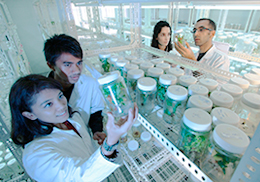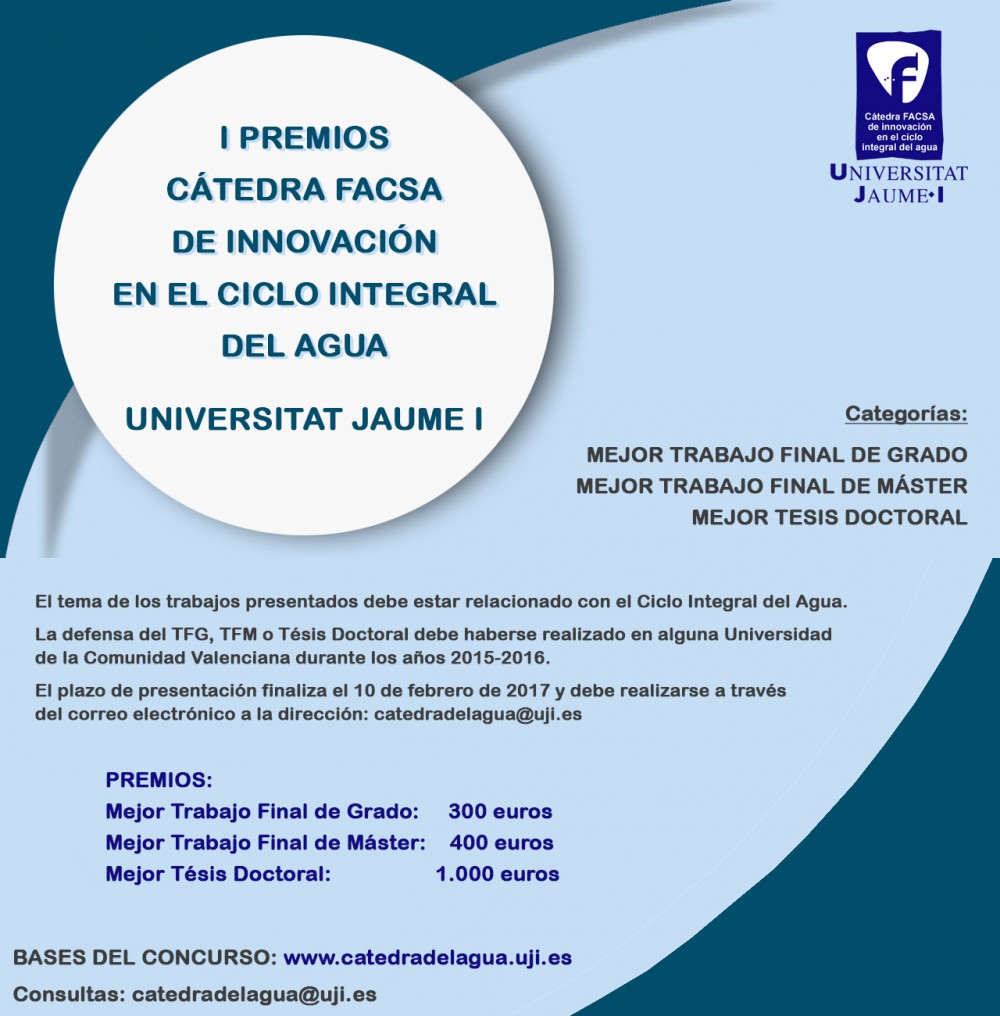
So says a survey in April 2015 done to the graduates of the master’s degree that was answered to the 43% of the total of students graduated up to this day, which showed that the 89% of them were currently working, 87% of them were working in job posts related to the contents of the Master’s Degree in Environmental Engineering.
20 june 2016
Thanks to this data we can conclude that the 78% of the students that studied this postgraduate programme were working in a job post related to their field of study. That is what says Ramón Barat Baviera, academic director of the Cross-University Master’s Degree in Environmental Engineering and member of the research group Calidad de Aguas (CALAGUA), belonging to the IIAMA-UPV and to the Department of Chemical Engineering (IQ-UV).
This postgraduate programme goes back to a UPV-specific degree related to the Management of Sewage Treatment Plants (EDAR), that evolved to become a cross-university master’s degree in 2006 taught by the Universitat Politècnica de València (UPV) and the Universitat de València (UV).
Barat gives importance to the fact that the Master’s Degree in Environmental Engineering is a cross-university master’s degree because this way, the strengths of each university are seized in order to offer the future professionals a more complete training in the subject matter. Likewise, “the global vision offered by the curriculum allows the students to know all the areas related to environmental engineering”, highlights the professor.
In this regard, it is necessary to remind the fact that El Mundo newspaper noted in its 2016 report on the best higher education studies at a national level, that the Master’s Degree in Environmental Engineering by the UV/UPV is among the top five in the field of Environmental Management.

“The global vision offered by the curriculum allows the students to know all the areas related to Environmental Engineering”, Ramón Barat highlights.
Ten years after this cross-university programme started, the Master’s Degree in Environmental Engineering, directed by Aurora Seco, is taught in two years. The first year is formed by mandatory 60 ETCS of core subjects, which are necessary for the whole training of the environmental engineer. The second year is formed by 30 ECTS, with external internships, the Master’s Degree Final Project and four optional subjects that the student must choose according to the field he or she wants to specialise in. The specialisations “Management of Sewage Treatment Plants”, “Environmental Management in the Industry” and “Environmental Management in Civil Engineering” are taught in the first semester of the second academic year.
Regarding the demand for this title, Barat states that there is a demand superior to the 200% on the number of offered places. “That is why we are so rigorous with the admission and we only select those students who are more suitable according to the profile” he says. By and large, both the Universitat de València and the Universitat Politècnica de València process more than 100 applications each year, out of which only 30 or 35 get to enter the master’s degree. “We need the student to enter the master’s degree with an adequate training in mathematics and chemistry that allows them to follow up the contents of the postgraduate degree”, adds the professor.
Although the profile of the student that choses our Master’s Degree (LINK) is heterogeneous, from the selection committee we try to select those students that are more suitable to the contents of the master’s degree, so our students have usually studied degrees like Chemical Engineering, Environmental Science, Chemistry, Biotechnology, Food and Agricultural Engineering and Rural Environment, Forest and Natural Environment Engineering, Civil Engineering and Public Works and the former Technical, Industrial, Public Works, Agricultural and Forest Engineering studies.
“In this postgraduate programme we offer training that allows the student to work in any consultancy firm, company, engineering or research team”, states Barat, who is very satisfied with the approach of this master’s degree to research, because the master’s degree allows the students to enter the professors’ research teams and also allows them to follow the different doctoral studies.










